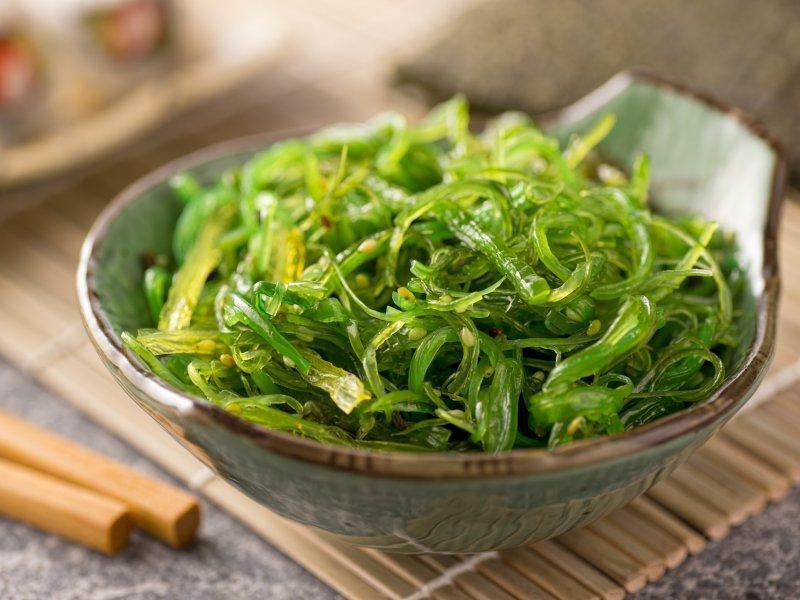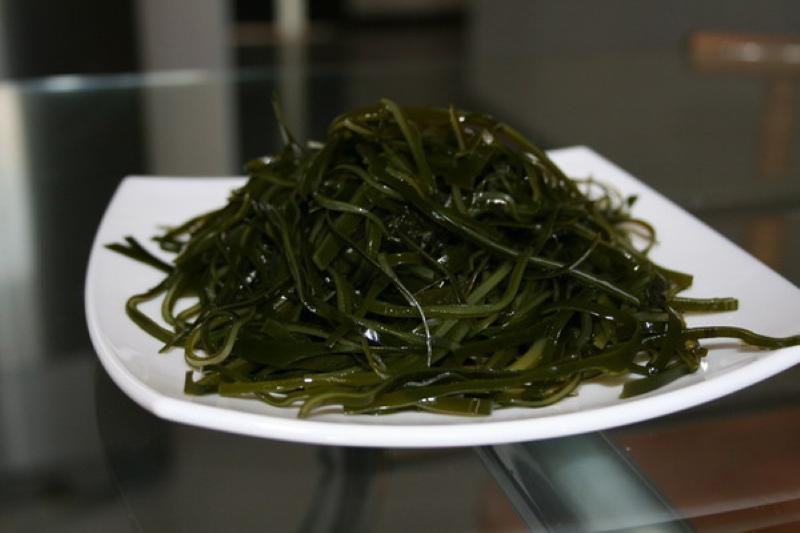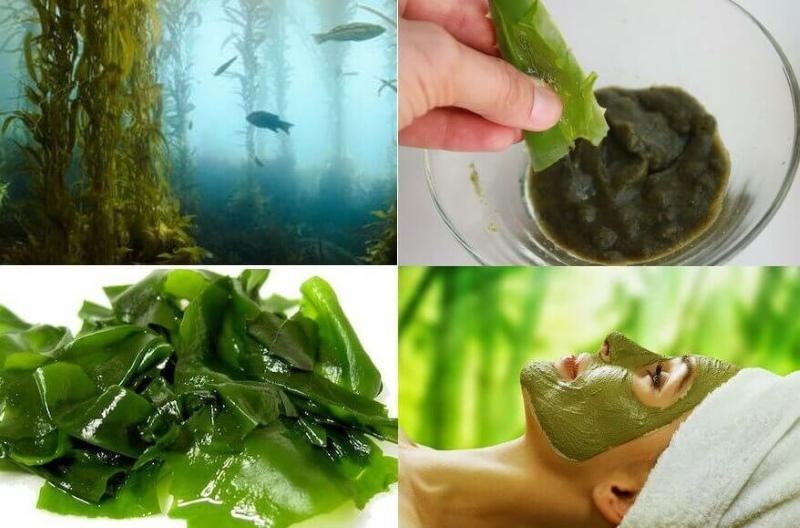Edible seaweed - seaweed, useful properties and contraindications of seafood
 It does not smell very good and does not look appetizing at all, but it is a real storehouse of vitamins, especially minerals. This is kelp, better known as seaweed, the useful properties and contraindications of which have been studied in our country since the 18th century. The sailors of one of the expeditions brought her to us. And since that time, kelp has been used in cooking and even in medicine.
It does not smell very good and does not look appetizing at all, but it is a real storehouse of vitamins, especially minerals. This is kelp, better known as seaweed, the useful properties and contraindications of which have been studied in our country since the 18th century. The sailors of one of the expeditions brought her to us. And since that time, kelp has been used in cooking and even in medicine.
Growing up in the depths of the sea, it smells almost the same, "like the sea." Because of the specific aroma, brown algae is not loved by everyone and it is completely in vain. The beneficial substances contained in it can replenish the reserves of vitamins in our body, as well as improve the functioning of some organs.
Seaweed - useful properties and contraindications

Why is seaweed useful?
 First of all, due to the large number iodine in its composition, kelp is indispensable for diseases of the thyroid gland. Especially if they are associated with a lack of this element.
First of all, due to the large number iodine in its composition, kelp is indispensable for diseases of the thyroid gland. Especially if they are associated with a lack of this element.
By including seaweed in your diet, you can see a positive effect in the near future, namely:
- metabolism is normalized;
- the stool is getting better and such a problem as constipation disappears;
- the body is cleansed of toxins and toxins;
- blood thinns, which serves as the prevention of thrombosis;
- hemoglobin rises;
- hormones and the menstrual cycle in women return to normal;
- increased libido in both sexes.
In medicine, kelp is valued for one more property - it serves as the prevention of cancer, especially among women.
Contraindications and restrictions to the use of kelp
 Despite the fact that kelp is good for a growing child's body, its intestines are still weak to digest it. Therefore, it is not recommended for children under 3 years of age. Nursing mothers should also use algae carefully, observing how the baby will react.
Despite the fact that kelp is good for a growing child's body, its intestines are still weak to digest it. Therefore, it is not recommended for children under 3 years of age. Nursing mothers should also use algae carefully, observing how the baby will react.
Given the laxative effect, it is necessary to eat cabbage in limited quantities. For adults, the daily rate should not exceed 100 g (subject to an absolutely healthy body), for children - no more than 50 g.
In addition, in the presence of certain diseases, kelp should not be consumed at all. This applies to:
- kidney disease;
- hives;
- furunculosis;
- tuberculosis;
- hyperfunction of the thyroid gland;
- exacerbation of gastrointestinal diseases;
- allergies to seafood or certain components of algae.